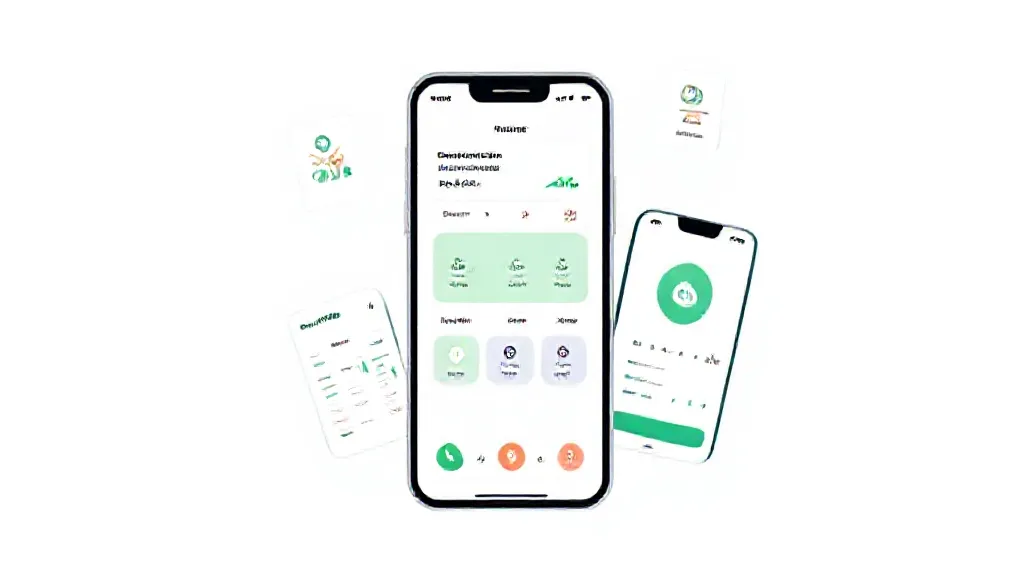In today's fast-paced world, managing personal finances has become more crucial than ever. With the rise of technology, numerous apps have emerged to help individuals track their spending, save for future goals, and invest wisely. This article delves into the best apps available in 2023 for managing personal finances, offering insights into their features, benefits, and user experiences.
The Importance of Personal Finance Management Apps
Personal finance management apps are designed to simplify the process of tracking income and expenses. They help users create budgets, set financial goals, and monitor their progress. With the increasing complexity of financial products and services, these apps serve as essential tools, enabling users to make informed decisions about their money.
A study by the National Endowment for Financial Education revealed that individuals who use budgeting tools are more likely to save and invest effectively.
Top Budgeting Apps for Everyday Use
One of the most popular budgeting apps is Mint, which offers a comprehensive overview of users' financial health. Mint connects to various bank accounts, credit cards, and investment accounts, automatically categorizing transactions and providing insights into spending habits.
Another noteworthy app is YNAB (You Need A Budget), which emphasizes proactive budgeting, encouraging users to allocate every dollar they earn towards specific goals. Both apps offer mobile access, making it easy to manage finances on the go.
Investment Tracking Made Easy
For those looking to invest, apps like Robinhood and Acorns have gained significant traction.
Robinhood allows users to trade stocks with zero commission fees, making it accessible for beginners. It also provides educational resources to help users make informed investment decisions. On the other hand, Acorns takes a unique approach by rounding up purchases to the nearest dollar and investing the spare change.
This "set it and forget it" method appeals to those who may not have the time or knowledge to actively manage their investments.
Savings Apps to Build Wealth
Savings apps like Qapital and Digit focus on helping users save money effortlessly. Qapital allows users to set specific savings goals and create rules that trigger automatic transfers to their savings account based on spending habits.
For example, users can choose to save $5 every time they buy a coffee. Digit, on the other hand, analyzes users' spending patterns to determine how much they can afford to save, transferring small amounts to savings without users even noticing. These apps make saving money a seamless part of everyday life.
Debt Management Solutions
Managing debt is another critical aspect of personal finance, and apps like Debt Payoff Planner and Tally can assist users in this area. Debt Payoff Planner helps users create customized repayment plans, allowing them to visualize their progress and stay motivated. Tally, on the other hand, is a credit card management app that helps users consolidate their debt and pay it off at lower interest rates.
By providing clear strategies for debt repayment, these apps empower users to take control of their financial futures.
The Role of Security in Financial Apps
As personal finance apps handle sensitive information, security is a top priority. Most reputable apps employ bank-level encryption and two-factor authentication to protect users' data.
Users should also be proactive in safeguarding their information by using strong passwords and regularly monitoring their accounts for any unauthorized transactions. Understanding the security measures in place can help users feel more confident in utilizing these financial tools.
Future Trends in Personal Finance Apps
The landscape of personal finance apps is continually evolving, with trends such as artificial intelligence and machine learning gaining traction.
These technologies enable apps to provide personalized recommendations based on users' financial behaviors, enhancing the overall user experience. Additionally, the integration of cryptocurrency features is becoming more common, allowing users to manage both traditional and digital assets within a single platform. As technology advances, the potential for more innovative solutions in personal finance management is vast.
Conclusion: Choosing the Right App for You
With a plethora of personal finance apps available, choosing the right one can be overwhelming. It is essential for users to assess their financial goals, preferences, and comfort levels with technology. Many apps offer free trials or basic versions, allowing users to explore their features before committing.
By leveraging these tools, individuals can take charge of their finances, leading to improved financial literacy and healthier financial habits.
